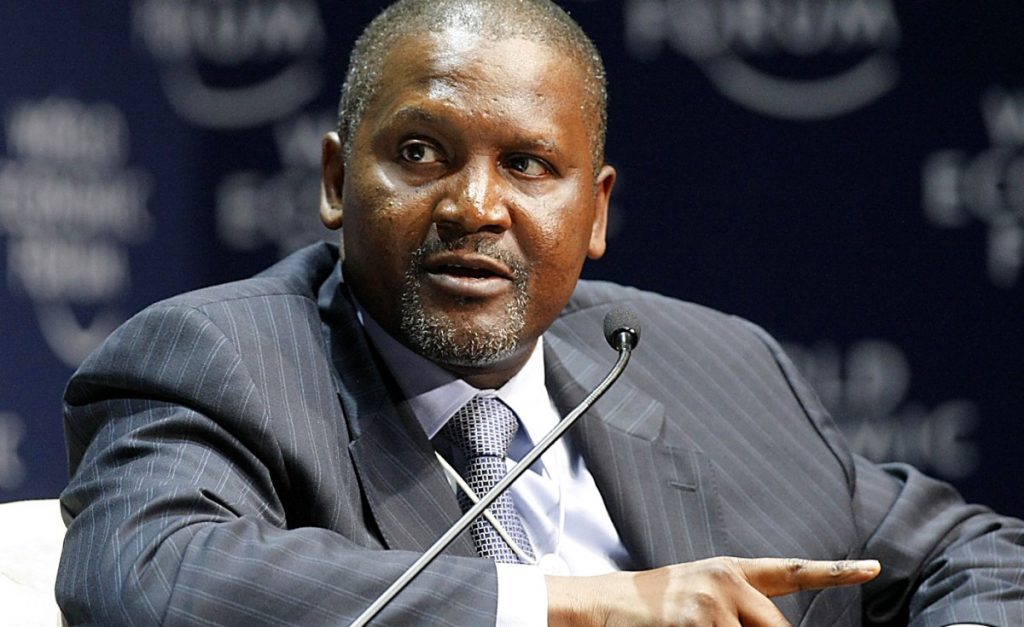According the 2016 Africa Wealth report, there are 165,000 high net worth individuals (HNWIs) living in Africa with a combined wealth holdings of US $860 Billion. This reflects that the number of HNWIs on the African continent has grown by over 150% within the last decade and more than doubled the global rate. It might also be interesting to note that Nigeria has the 3rd highest number of HNWIs in Africa of about 15,700 HNWIs falling only behind the numbers in South Africa and Egypt. According to the report, Nigeria outperformed the global HNWIs average. Nigeria’s HNWIs increased by 44% while the global HNWI average declined by 0.3% and it is estimated that Nigeria’s HNWIs will reach 23,000 by 2017.
To further Paint an optimistic picture with a broader frame – It is estimated that Africans who fall in-to the Ultra-high-net-worth bracket (asset in excess of $30 million) will surge by 59 % over the next decade as against the lower 34 % predicted for global growth. This 2015 wealth report by Knight Frank in collaboration with Global Cities and Global Attitudes annual survey also projected the rise of the MINT (Mexico, Indonesia, Nigeria and Turkey) over the BRICS (Brazil, Russia, India, China and South Africa) with a 76% growth rate projection for the former and 72% for the latter within the context of high net worth individuals. However, the optimistic optics of the above mainframe begins to diminish when one takes a holistic view in the grand scheme for economic equality.
In the case of Nigeria, it is unfortunate to note that the 44 % increase in number of HNWIs between 2007 and 2014 occurred despite a 25% depreciation of naira against the dollar and a positive correlation was also established between increasing commodity prices in the country and increase in the number HNWIs. Although other factors such as new business formations in telecoms and other sectors were attributed to the increase, a significant percentage benefited from the further impoverishment of the majority through the reduction of their purchasing power by the increase in commodity prices. This perhaps speaks to the ills of capitalism and it is also a major problem of natural resource based economies in Africa.
Another closer glance that makes a mockery of the pan-Africanism we echo in the ‘Trade not Aid’, and the ‘African solutions for African problems’ narratives is the realization that the bulk of the wealth of Africa’s HNWIs who own legitimate businesses are held up in traditional holding centers such as the United Kingdom, Channel Islands, Switzerland and more recently Dubai which has become a wealth haven for North African HNWIs. In terms of philanthropy, there is a growing narrative that African philanthropy is gradually receding the importance of foreign aid which I consider to be largely unfounded. While Africans can be considered to be largely charitable people with a communal nature, only a minute fraction of its HNWIs are significant givers. This is evident in that the significant percentage increase in HNWIs over the decade has not resulted in proportionate increase in African philanthropy. Although, new institutions like the African Philanthropic Forum and African Grant-makers network point to growing collective effort at mobilizing ‘local giving’ and providing a framework for African Philanthropy, much is left to be achieved.
However, these new institutional effort at providing a framework is particularly of the essence to address what philanthropy should mean in Africa. It should go beyond the tokenism that presently characterize the charitable activities of most of Africa’s HNWIs and the Corporate Social Responsibility initiatives of Africa’s private sector. If African Philanthropist truly desire to have a significant effect on the development of the continent, they must move their focus beyond unsustainable consumption focused activities to transformative ventures. The hard truth is that limited resources will continue to battle with too many developmental problems at the risk of achieving nothing, as such, focus should be on areas with the most potential to invariable solve other problems. I strongly believe massive investment in social entrepreneurs with a broader collaboration with other stakeholders like the government and the civil society on the optimization of other human development initiatives is a potential frontier.
In North America, philanthropic organizations have being the driving force behind advancement in health, education and social equity. As of today, Africa’s HNWIs have the potentials in terms of resources, networks and opportunities to serve as a catalyst for greater levels of social and economic change exceeding what can be achieved by cash-strapped governments or foreign donors. According to Reeta Roy, the President and CEO of MasterCard Foundation, ‘the art of philanthropy requires keeping our egos in check and a relentless focus on the public good. It calls for an insatiable curiosity, a willingness to listen and learn, the capacity to collaborate, and rigor and discipline in evaluation’.
While clamoring for increased participation of the African private sector and African High Net worth Individuals in the development effort on the continent, we must not fail to acknowledge and further encourage initiatives like the ongoing Tony Elumelu Entrepreneurship Program (TEEP) with a $100 million endowment fund to raise 10,000 African social entrepreneurs within a decade. This initiative is by only one of Nigeria’s 15,700 HNWIs who accounting for 36% of Nigeria’s total individual wealth. I will leave you to imagine the significance for economic growth for 10 of such initiatives as TEEP by HNWIs in each country in Africa and its implications for overall development of the continent.
Opeyemi Oriniowo is the Content-Editor of Abovewhispers.com. He is a development practitioner and analyst with thematic focus on Poverty and Inequality. He is fellow of the New Union for the Development of Green Economy, Netherlands.


